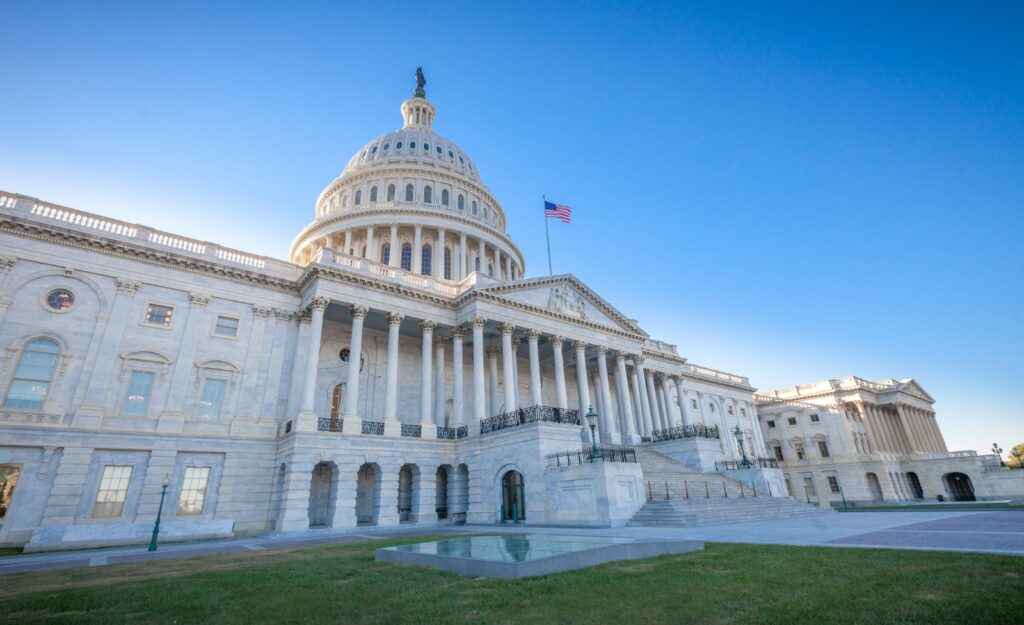
Office of
Advocacy
The independent voice for small businesses and entities within the federal government.


Economic Data Snapshot of the Month
2025 Small Business Profiles for the States, Territories, and Nation
Led by the Chief Counsel
Created by Congress in 1976, our office is led by the Chief Counsel for Advocacy, who is appointed by the President and confirmed by the U.S. Senate.
Who We Are »
Our office advances the views and concerns of small business before Congress, the White House, federal agencies, federal courts, and state policymakers. By conducting small business outreach, commenting in the federal regulatory process, and helping agencies develop less burdensome regulations, we amplify the voice of small business owners in the regulatory space.
What We Do »
Despite the name, Advocacy is independent of the U.S. Small Business Administration (SBA). We do not take part in SBA’s work on loans, disaster relief, or procurement. Instead, we represent your interests in the federal regulatory process and produce data for policymakers to craft smarter laws.
How to Get Involved »
Roundtables, site visits, and online comments. Advocacy attorneys and economists are traveling around the country inviting small businesses to share their experiences at roundtable discussions.
The RFA »
The Regulatory Flexibility Act was originally passed in 1980 and was amended by the Small Business Regulatory Enforcement Fairness Act of 1996, the Dodd-Frank Wall Street Reform and Consumer Protection Act, and the Small Business Jobs Act of 2010.

OUR MISSION
To ensure small businesses have a voice in the federal regulatory process.
Through our Red Tape Hotline, business owners can report regulations that may be overly burdensome or costly. Your feedback helps inform policymakers and improve outcomes for entrepreneurs nationwide.
Small Business Facts
We also do research to help policymakers understand what is needed for the start-up, development, and growth of American small businesses and organizations.

<500
A small business is generally defined as an independent business with fewer than 500 employees.

36.2M
There are 36.2 million small businesses in the United States.

88.9%
In the latest year, small businesses contributed a net increase of 1.2 million jobs, which was 88.9 percent of the increase for the nation.

62.3M
Between 1998 and 2022, U.S. small business employment grew by 13.1 percent, reaching 62.3 million employees in 2022.

33%
Exports by small firms made up 33 percent of all exports.

97.2%
Small business accounted for 97.2% of exporters (270,014 businesses) in the United States.
What’s New at Advocacy
Recent regulatory updates and relevant events.
Regulatory Alerts
Advocacy’s efforts to have agencies comply with the Regulatory Flexibility Act have saved small businesses billions of dollars in regulatory costs. Our office has worked with federal agencies to avoid excessive regulatory burdens on small businesses since 1980 and continues to do so.


Agency Roundtables
Explore information on the various agency roundtables hosted by the Office of Advocacy. Roundtables provide a platform for small business representatives to engage with federal agencies, discuss regulatory issues, and share concerns related to specific industries.
Comment Letters
The Regulatory Flexibility Act directs Advocacy to monitor whether proposed federal regulations consider the effects on small businesses. Advocacy files comment letters with federal agencies to alert them to their rules’ small business impacts and to propose alternative approaches to achieving regulatory goals.


Economic Research
Advocacy produces economic studies, issue briefs, and fact sheets about national and international economic research, small business finance, ownership demographics, and other topics. The office also commissions detailed data on small business from the U.S. Census Bureau.
Regional Outreach
Advocacy has regional advocates in each of the 10 federal regions. These advocates interact with small businesses, state and local governments, chambers of commerce, and many other communities to support small businesses and learn more about the potential challenges they face.


BLOG
Advocacy Insights
Stay updated with the latest blogs and small business victories.
